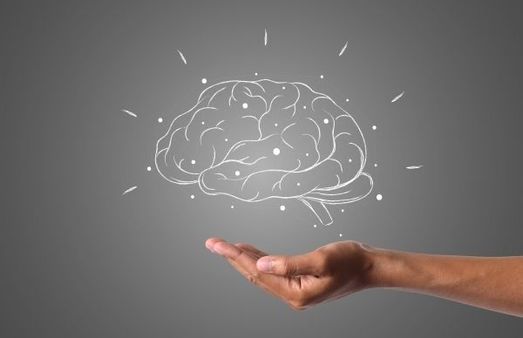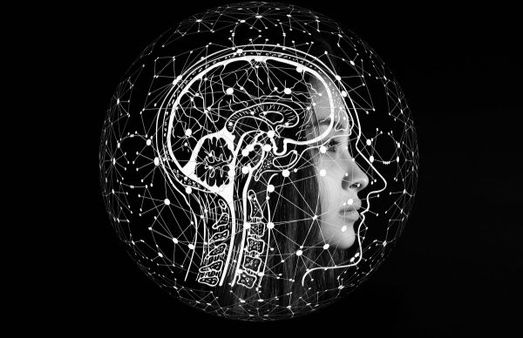Just In
- 23 min ago

- 3 hrs ago

- 7 hrs ago

- 10 hrs ago

Don't Miss
- Movies
 Masaba Gupta Expecting First Child With Hubby Satyadeep Misra; Neena Gupta Shares Excitement In VIRAL Post
Masaba Gupta Expecting First Child With Hubby Satyadeep Misra; Neena Gupta Shares Excitement In VIRAL Post - Finance
 7:1 Bonus, Rs 778.75/Sh Dividend In 20 Yrs: Infosys To Offer Massive Rewards, Up Next Rs 28/Sh Payout Soon
7:1 Bonus, Rs 778.75/Sh Dividend In 20 Yrs: Infosys To Offer Massive Rewards, Up Next Rs 28/Sh Payout Soon - Sports
 PBKS vs MI Live Score, IPL 2024 Updates: Ishan Kishan departs Early
PBKS vs MI Live Score, IPL 2024 Updates: Ishan Kishan departs Early - News
 Social Media Users Laud Gujarat Titans' Fangirl, Call Her Ana de Armas' Lookalike
Social Media Users Laud Gujarat Titans' Fangirl, Call Her Ana de Armas' Lookalike - Technology
 Nothing Ear, Ear a With ANC, Up to 42.5 Hours of Battery Launched; Check Price and Availability
Nothing Ear, Ear a With ANC, Up to 42.5 Hours of Battery Launched; Check Price and Availability - Education
 PSEB Class 10 Toppers' List 2024, Check the Ranks of Toppers
PSEB Class 10 Toppers' List 2024, Check the Ranks of Toppers - Automobiles
 All About Electronic Stability Control ESC: Working & Advantages
All About Electronic Stability Control ESC: Working & Advantages - Travel
Telangana's Waterfall: A Serene Escape Into Nature's Marvels
14 Health Conditions That Can Change One's Personality Dramatically
Throughout your life, your personality can gradually change. Mood swings are a normal part of life. Nonetheless, unusual personality changes may be a sign of a medical or mental disorder.
Health conditions can affect your personality and cause you to act in ways that are out of character.

Health Conditions That Can Change One's Personality
1. Alzheimer's Disease
Your thinking, judgement, memory, and decision-making are affected by this illness. As a result, it can make you feel confused and alter your behaviour. Such as, a calm and pleasant person can turn mean. One of the most common forms of dementia, Alzheimer's Disease (AD), is a neurodegenerative disease. While the symptoms are often quite mild at the onset of the disease, they gradually progress to take on a more severe form, and only 1 in 4 people with Alzheimer's are diagnosed [1].
2. Dementia with Lewy Bodies (DLB)
This is the second most common form of dementia after Alzheimer's. Lewy bodies form in the brain areas that control memory, movement, and thinking, affecting you mentally and physically. People who have this health condition tend to become more passive, showing little emotion and losing interest in hobbies [2].
3. Huntington's Disease
Huntington's disease is a progressive brain disorder caused by a defective gene. As a result, changes occur in the central area of the brain, affecting movement, mood and thinking abilities [3].
One might have a hard time thinking clearly, getting frustrated to the point of physical aggression, or ignoring basic things like brushing their teeth.


...
4. Parkinson's Disease
This degenerative disorder can greatly impact a person's ability to move around or do basic things on his/her own. It occurs when the nerve cells in the brain are unable to produce a particular chemical known as dopamine. Moreover, this is a progressive disorder that will only worsen over time instead of getting better. It may cause things like obsessing over small details or sudden carelessness even at an early age. As time goes on, the person might seem absentminded or less social [4].

5. Thyroid Disease
Thyroid disorders occur when the thyroid gland either produces excess or fewer thyroid hormones called hyperthyroidism or hypothyroidism, respectively. When your thyroid doesn't function properly, the adverse effects are reflected in your health. If undiagnosed, the thyroid can lead to health problems such as weight gain, anxiety, forgetfulness, hair loss, muscle pain, sexual dysfunction, depression and infertility, among others [5].
6. Multiple Sclerosis (MS)
Multiple sclerosis (MS) is a chronic disease that affects the body's brain and central nervous system. Eventually, multiple sclerosis can cause permanent damage to the nerve cells. It can cause problems ranging from bladder issues to the inability to walk. On the other hand, it can lead to a feeling of constant euphoria [6].

...
7. Brain Tumour
A brain tumour is the growth of abnormal cells in the brain. It can either be benign (noncancerous) or malignant (cancerous). Brain tumours can occur at any age; however, elderly patients tend to have a high risk of developing primary brain tumours. A tumour in the frontal lobe of your brain can affect the areas involved in personality, emotions, problem-solving, and memory [7].
8. Cancer
Tumours in the brain and spinal cord are not the only ones affecting personality. Having a cancerous one in your pituitary gland, which controls your hormone levels, will do the same. Cancer can also develop in mucus-producing cells and other fluid-producing cells, called adenocarcinomas. This can occur throughout your body, including the breasts, colon, lungs, and pancreas [8].
9. Stroke
Stroke is ranked as the second leading cause of death and the third leading cause of disability worldwide. A stroke occurs when a blood vessel in the brain bursts and bleeds or when there is a reduction of blood supply to a part of your brain, which prevents the brain tissues from receiving oxygen. As a result, brain cells and tissues are damaged and begin to die within minutes. In addition, it can change someone's personality in some ways, such as losing patience more easily, having serious mood swings, or acting more impulsively than they usually do [9].

...
10. Traumatic Brain Injury
Personality changes may occur over time after a serious blow to the head. If the situation is more serious, one may seem like a different person, saying or doing things they would never have [10].
11. Bipolar Disorder
Bipolar disorder, also known as manic depression, is a complex mental condition that involves dramatic mood swings and uncontrollable behavioural changes. The disorder primarily affects the mood, thoughts and behaviours of a person [11].

12. Depression
Depression can impact your life in ways that can change you as a person, and never for the better. Unfortunately, people with depression may find it difficult to put into words the deliberating mental and physical pain they suffer, so they are left to figure it out on their own.Women often feel worthless, sad, and guilty, whereas men tend to feel tired, irritated, and angry [12].

...
13. Schizophrenia
Schizophrenia is a complex and chronic mental health condition characterised by several symptoms such as delusions, hallucinations, disorganised speech or behaviour and impaired cognitive ability [13].
14. Obsessive-Compulsive Disorder
OCD makes one feel anxious and that they can't control their thoughts or urges. Frequently washing hands is one example. It may take an individual a long time to complete simple tasks, and they might develop have self-doubt. Criticism from others can exacerbate anxiety [14].
-
 healthExclusive: Cervical Cancer In India, Doctor Shares Preacautions And Treatments That One Needs To Be Aware Of
healthExclusive: Cervical Cancer In India, Doctor Shares Preacautions And Treatments That One Needs To Be Aware Of -
 healthTV Actor Dolly Sohi Passes Away Due To Cervical Cancer, Know The Early Signs That Are Beyond Early Detection
healthTV Actor Dolly Sohi Passes Away Due To Cervical Cancer, Know The Early Signs That Are Beyond Early Detection -
 healthGhazal Maestro Pankaj Udhas Passes Away Due To Pancreatic Cancer, Know Risk Factors, Prevention, Treatments
healthGhazal Maestro Pankaj Udhas Passes Away Due To Pancreatic Cancer, Know Risk Factors, Prevention, Treatments -
 healthNew Study Finds Links Infertility In Men With Increased Risk Of Cancer For Them And Their Relatives
healthNew Study Finds Links Infertility In Men With Increased Risk Of Cancer For Them And Their Relatives -
 healthIs Pancreatic Cancer Curable? Know The Causes, Warning Signs, And Treatment Of This Uncommon Silent Killer
healthIs Pancreatic Cancer Curable? Know The Causes, Warning Signs, And Treatment Of This Uncommon Silent Killer -
 insyncBaba Vanga's Prophecy For 2024 May Come True With New Vaccine In Russia For Cancer
insyncBaba Vanga's Prophecy For 2024 May Come True With New Vaccine In Russia For Cancer -
 healthDetecting Bowel Cancer: 10 Signs Of This Silent Killer To Watch Out For And Seek Medical Attention
healthDetecting Bowel Cancer: 10 Signs Of This Silent Killer To Watch Out For And Seek Medical Attention -
 health10 Cancer Fighting Foods That Help That Play Significant Role In Supporting Body's Natural Defences
health10 Cancer Fighting Foods That Help That Play Significant Role In Supporting Body's Natural Defences -
 healthWorld Cancer Day 2024: 5 Simple Daily Habits To Reduce The Risk Of Developing Cancer
healthWorld Cancer Day 2024: 5 Simple Daily Habits To Reduce The Risk Of Developing Cancer -
 healthWorld Cancer Day 2024: Messages, Greetings, Wishes, Texts, Images, FB And WhatsApp Status
healthWorld Cancer Day 2024: Messages, Greetings, Wishes, Texts, Images, FB And WhatsApp Status -
 healthExclusive: Poonam Pandey Didn't Die Of Cancer, However, It Does Spark Urgency For Cervical Cancer Awareness
healthExclusive: Poonam Pandey Didn't Die Of Cancer, However, It Does Spark Urgency For Cervical Cancer Awareness -
 healthErotica Star Poonam Pandey 'Dead From Cervical Cancer' Stunt: Causes, Symptoms, Treatment Of Cervical Cancer
healthErotica Star Poonam Pandey 'Dead From Cervical Cancer' Stunt: Causes, Symptoms, Treatment Of Cervical Cancer


 Click it and Unblock the Notifications
Click it and Unblock the Notifications



